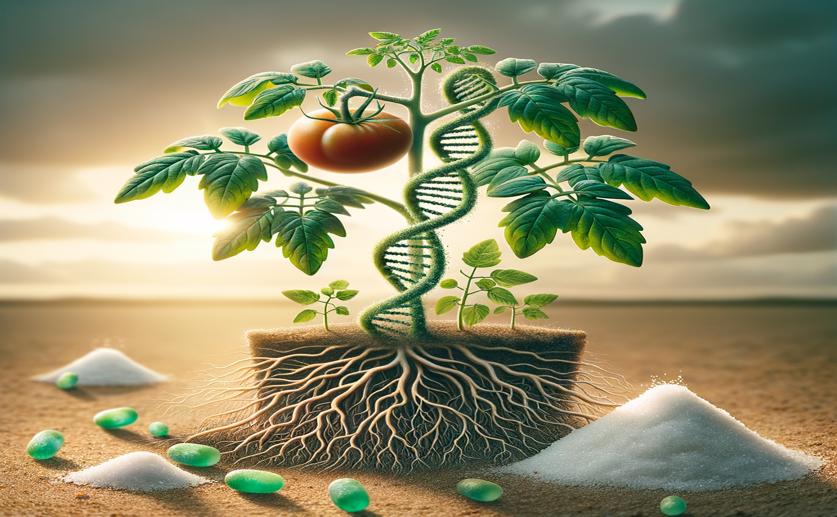
Understanding How Tomatoes Handle Salt: A Key Genetic Discovery
Jim Crocker
17th August, 2024

Image Source: Natural Science News, 2024
Key Findings
- Researchers in Montfavet, France, identified a key genetic factor that could help breed salt-tolerant tomato varieties
- They found a major QTL linked to sodium accumulation in tomato leaves, with the gene SlHKT1.2 playing a crucial role
- The identified QTL retained its impact in hybrid tomatoes, showing potential for breeding salt-tolerant cultivars
AgricultureGeneticsPlant Science
References
Main Study
1) Characterisation of a major QTL for sodium accumulation in tomato grown in high salinity.
Published 15th August, 2024
https://doi.org/10.1111/pce.15082
Related Studies
2) Role of Na+, K+, Cl-, proline and sucrose concentrations in determining salinity tolerance and their correlation with the expression of multiple genes in tomato.
3) Major Impacts of Widespread Structural Variation on Gene Expression and Crop Improvement in Tomato.
4) Comparison of Tomato Transcriptomic Profiles Reveals Overlapping Patterns in Abiotic and Biotic Stress Responses.



 4th August, 2024 | Greg Howard
4th August, 2024 | Greg Howard